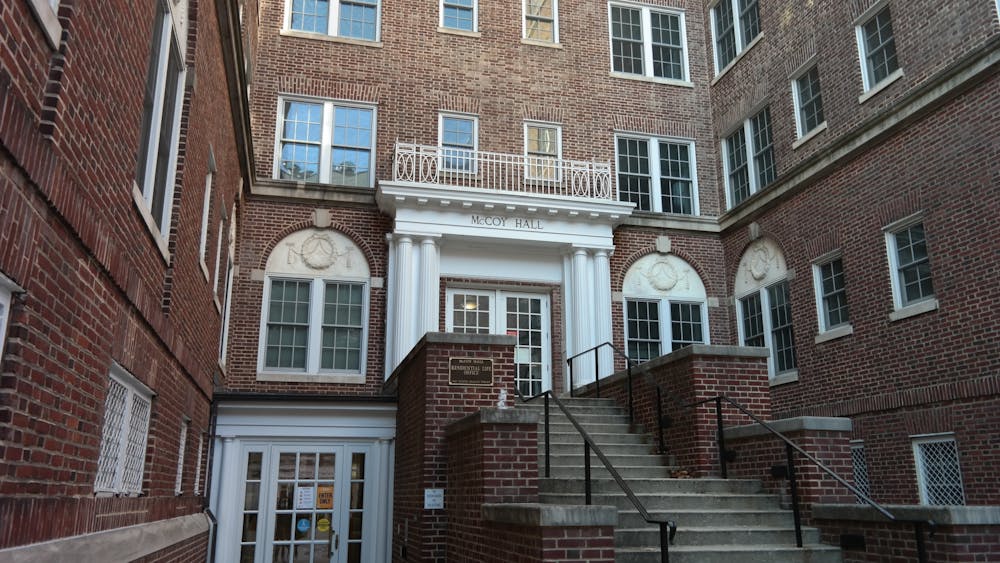The University will no longer allow first-year students to choose their own roommates beginning with the Class of 2026. Hopkins will follow peer institutions like Duke University, Vanderbilt University and Stanford University in transitioning to a university-determined roommate assignment process.
Sarah Mansfield, the director of housing operations, confirmed the plans in an email to The News-Letter.
“The transition to university-assigned roommates helps eliminate some of the anxieties associated with the formation of pre-arrival social networks that can leave other students isolated from the outset, and inhibits opportunities to form new and inclusive bonds upon arrival,” she wrote.
First-year students currently have the option to mutually select their roommates, although some already choose to be paired by the University based on their responses to a lifestyle questionnaire, which includes questions about sleeping schedule, cleanliness and study habits.
Sophomore Nicole Loza opted to be randomly paired with roommates her freshman year. She explained in an email to The News-Letter that she chose the random assignment because she was unable to connect with other freshmen before coming to campus.
“I struggled with reaching out to other students and I also did not know how to get to know someone well online,“ she wrote.
Loza stated that she had an overwhelmingly positive experience with her roommates and they are still close to this day. However, she noted that this may not be the outcome for all students.
“In my case, I am not a picky roommate and I do not think that I have many problems with people in general, so I knew random roommates would most likely be fine with me,” she wrote. “Other students, who are more particular about their living situation, should be urged to find a roommate on their own.”
The new plan was shared in recent weeks with select student leaders and First-Year Mentors (FYM). Sophomore FYM Andrea Guillen does not support the new policy.
“It creates more of an emotional and bureaucratic nightmare for everyone,” she said. “It's more anxiety-inducing for when they're starting a new semester. Housing shouldn't be something they should worry a ton about.”
Guillen requested to live in a single her freshman year because, while finding a roommate herself was intimidating, living with a University-assigned one was equally daunting.
She believes the University should instead allocate resources to make the current roommate process better.
“When you're forced to get a roommate and don't like them, you're going to end up hating the University,” she said. “The resources could be better used to improve the lifestyle questionnaire for people who want random and facilitate more meetups for people who want to pick their roommates.”
The University plans to hold feedback sessions this spring, focusing on ways to expand and improve the questionnaire, according to Mansfield.
Senior Nick Malloy, who is also an FYM, is concerned about the limits of the questionnaire.
“It's going to remove a lot of the nuance that is important to choosing who you want to live with,” he said.
Guillen also believes that even an improved questionnaire will not solve the problem with a university-assigned roommate process.
“A lifestyle questionnaire will never get a student matched perfectly,” she said. “A lot of people are not 100% honest on the questionnaire about their sleeping schedules or even preference for gender-inclusive dorms. It can lead to not just uncomfortable pairings but ones that can be potentially unsafe and create a dorm that is constantly tense.”
Ireland Parrish, a freshman class senator in the Student Government Association, warns that the proposed process could be dangerous.
“I worry that it could put LGBTQ students in a situation where they are spending every waking moment with someone who doesn't accept their sexuality,” she said. “LGTBQ students, particularly transgender students, need the option to choose their own roommate because they know that they'll end up living with someone they trust if it’s their choice.”
Mansfield noted that the University is committed to maintaining gender- and religious-inclusive housing but did not comment specifically on concerns raised by LGTBQ students.
Freshman Ash Saucedo, who is transgender, chose his roommate this year. He disagrees with the proposed policy change and believes that Hopkins should give students more choice in selecting people they are living with, including suitemates.
“There was a definite fear when I got assigned my suitemates that they were going to be transphobic,” he said. “If I wasn't able to feel comfortable in the suite doing small things such as watching TV in the living room or making ramen, I know it would affect my academics because I would lack the ability to fully focus on my studies.”























Please note All comments are eligible for publication in The News-Letter.